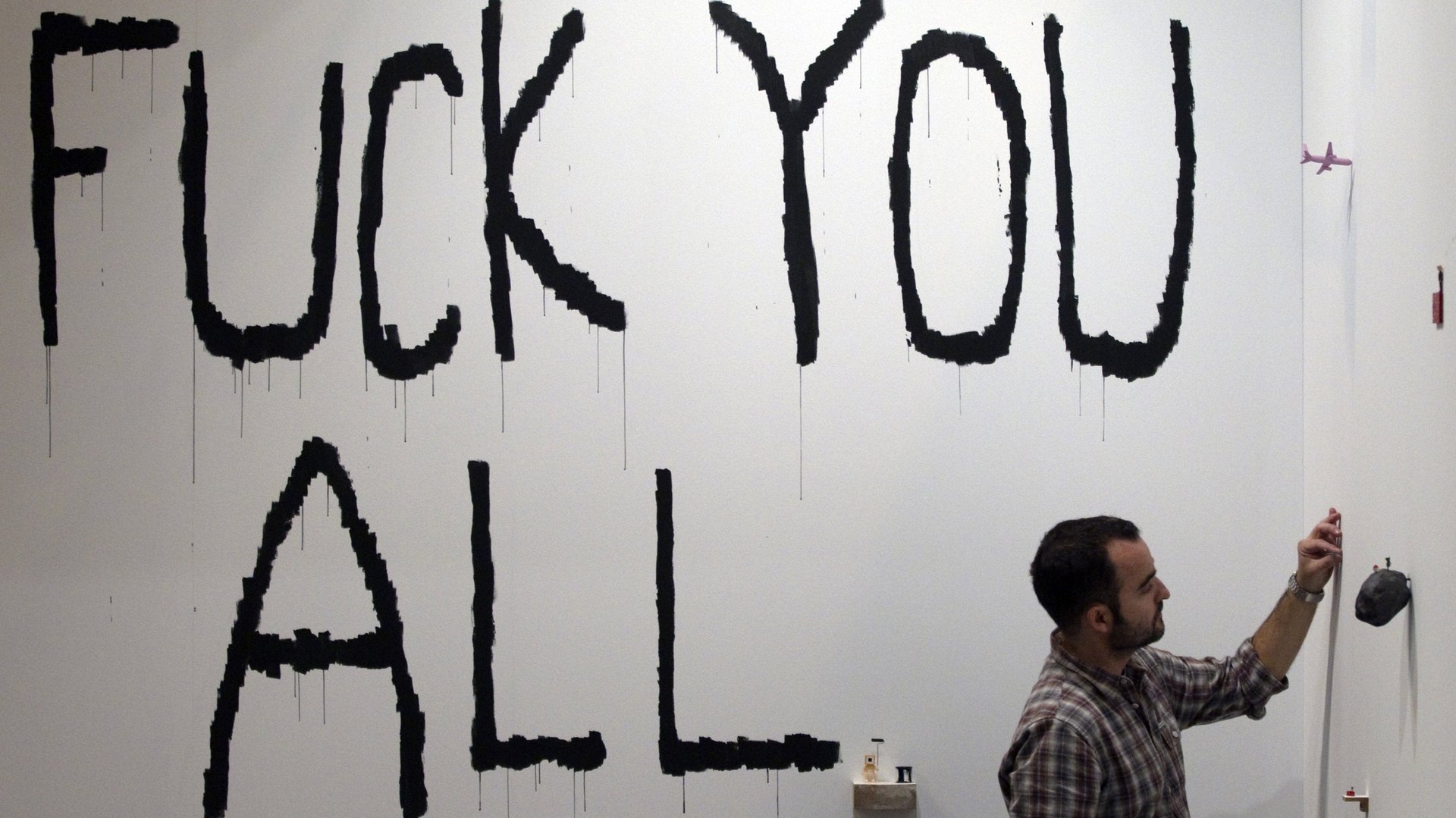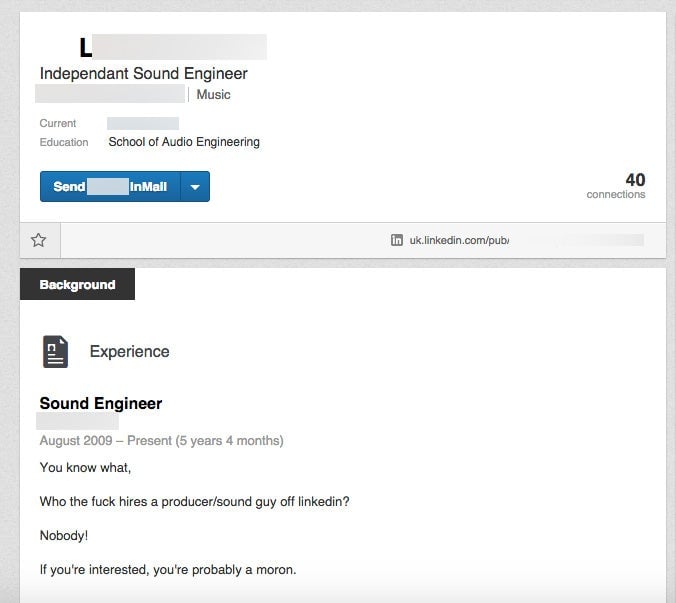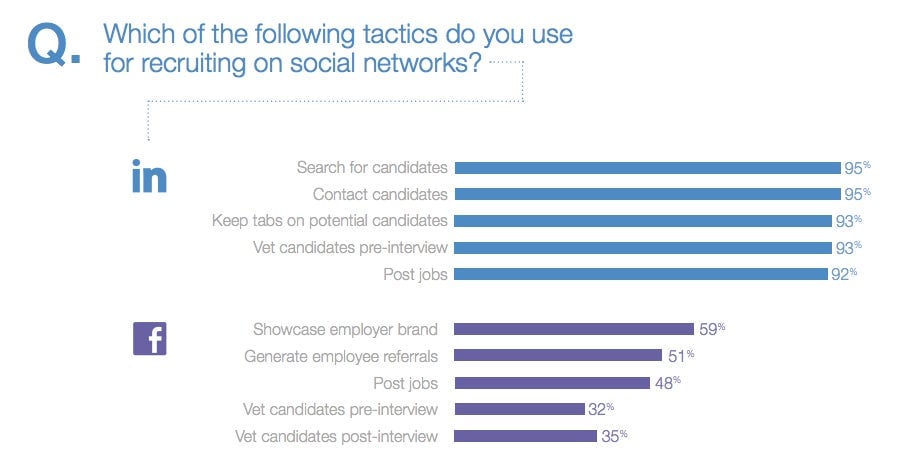Why you should never swear on your LinkedIn profile
Over 31,000 users on LinkedIn are not using their most professional voice.


Over 31,000 users on LinkedIn are not using their most professional voice.
Social networking blog “The LinkedIn Man” conducted a search ”for some of the leading profane or vulgar terms” found on LinkedIn profiles. They found that more than 31,000 users (just a fraction of the 300 million users worldwide) had some sort of vulgarity on their professional networking profile, with the entertainment, marketing and music industries being the worst culprits. Microsoft employees swear more than their counterparts in the Army:
Dig a bit deeper, and you’ll discover some other things…For example, the top five industries guilty of LinkedIn potty-mouth are:
Entertainment
Marketing and advertising
Music
Information technology
Writing and editing (!)
[…]
Incredible, isn’t it? So is this: the top five (globally) obscene organisations on LinkedIn include:
Microsoft
US Army
McDonald’s
IBM
(By the way, the top five offending countries are the US, the UK, Denmark, the Netherlands and Australia.)
Indeed, searching for a couple vulgar terms (NSFW) on LinkedIn leads not only to short-sighted college students or social media accidents, but sometimes to senior-level staff. ”I didn’t know what the f*** I was doing,” reminisces one engineering manager in his “Experience” section. Posts by LinkedIn’s curated professional influencers are just as prone to the occasional f-bomb.

The damaging potential of using vulgar language on public profile are obvious. Recruiting platform Jobvite’s 2014 Social Recruiting Survey (pdf) of 1,855 recruiting professionals found that 94% of recruiters use LinkedIn for recruiting and 93% of those use LinkedIn to “vet candidates pre-interview.” Fifty-five percent of recruiters say they’ve “reconsidered” hiring decisions based on what they saw on social media profiles.

And while the majority of Facebook users have some sort of vulgar comment or post on their Facebook timelines, publicly sharing obscenity might not be wise for the job seeker there either: 32% of recruiters use Facebook for the same purpose.
The potential damage of LinkedIn unprofessionalism does not stop at the job seeker themselves, as the LinkedIn Man blog notes, “imagine the impact, risk and outright possibilities for brand damage this poses for the organizations they work for.” Gratuitous profanity has never been allowed on the network—LinkedIn’s User Agreement requires users to “not act dishonestly or unprofessionally, including by posting inappropriate, inaccurate, or objectionable content” but LinkedIn also does not ”monitor, filter, or remove content” unless it contains “threats of physical harm” or “abusive profanity.”